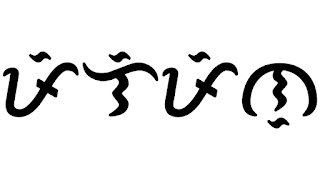Asian Mythology | Mythlok
In ancient #Tagalog, the Supreme Being known as Bathala Maykapal, commonly known as Bathala, is regarded as the creator and ruler of the universe. This term was also used for lesser beings such as personal spirits, omen birds, comets, and other heavenly bodies. It was after the Spanish missionaries came to the #Philippines that Bathala Maykapal became known as a Christian God. Before the 19th century, the term was never used since it was replaced by the words Panginoon and Diyos.
Bathala is the #creator of everything in the universe. He is said to have appeared during various natural phenomenon such as a flood, a fire, and an earthquake, and he declared his authority over the world. The origin or where Bathala came from is not known or documented.
The worship of Bathala, although common across the various islands and tribes of the #Philippines, is most prominent in the Luzon area and its indigenous tribes.
Bathala is considered to be very humanlike in his appearance as he created human beings in his own image in the various creation stories that exist. Various stories of Bathala across the Philippines describe him as an ageless #god with a flowing white beard but extremely strong and powerful.
Other myths and folkore depict him as a young man at the time of the creation and during his battles with his enemies like Sitan and Ulilangkalulua. Other myths also describe him as a giant of a man who lived alone on earth before creating all living beings.
Across the many islands of the Philippines, Bathala is known by many names. Also known as Abba, this highest-ranking deity was described as “may kapal sa lahat,” or the creator of everything. His origin is unknown but his name suggests Hindu influences. The name Bathala is said to be derived from the Sanskrit word bhattara.
The other names attributed to Bathala include Badala, Badhala, Batchala, Mulayri, Molaiari, Molayare, Nuno, Maykapal, Maygawa, Lumikha, Diwata and Dioata.
Bathala was all powerful and commanded obedience and reverence wherever he went. From his sky-like abode, Kawalhatian, Bathala can oversee humanity. He is pleased to see his people follow his rules and intentions. He is pleased when people do good to him, and he lavishes his love on those who paid him homage by following his moral laws. #Filipinos are said to adopt a loose and passive attitude toward worldly affairs, which is attributed to the country's dependence on him. He is also harsh towards those who are not following his rules. He sends lightning and thunder to punish those who do not follow his teachings.
Revival of ancient and traditional Filipino gods is on full swing in the region with the inhabitants finally shedding years of Spanish influence that stems from the colonisation of the islands by the European aggressor. The youth in particular are choosing to refer to the ancient gods and deities in their original names and adopting traditional worship rather than the Spanish documented ones. Bathala is in the forefront of this silent revolution.
Bathala is the #creator of everything in the universe. He is said to have appeared during various natural phenomenon such as a flood, a fire, and an earthquake, and he declared his authority over the world. The origin or where Bathala came from is not known or documented.
The worship of Bathala, although common across the various islands and tribes of the #Philippines, is most prominent in the Luzon area and its indigenous tribes.
Bathala is considered to be very humanlike in his appearance as he created human beings in his own image in the various creation stories that exist. Various stories of Bathala across the Philippines describe him as an ageless #god with a flowing white beard but extremely strong and powerful.
Other myths and folkore depict him as a young man at the time of the creation and during his battles with his enemies like Sitan and Ulilangkalulua. Other myths also describe him as a giant of a man who lived alone on earth before creating all living beings.
Across the many islands of the Philippines, Bathala is known by many names. Also known as Abba, this highest-ranking deity was described as “may kapal sa lahat,” or the creator of everything. His origin is unknown but his name suggests Hindu influences. The name Bathala is said to be derived from the Sanskrit word bhattara.
The other names attributed to Bathala include Badala, Badhala, Batchala, Mulayri, Molaiari, Molayare, Nuno, Maykapal, Maygawa, Lumikha, Diwata and Dioata.
Bathala was all powerful and commanded obedience and reverence wherever he went. From his sky-like abode, Kawalhatian, Bathala can oversee humanity. He is pleased to see his people follow his rules and intentions. He is pleased when people do good to him, and he lavishes his love on those who paid him homage by following his moral laws. #Filipinos are said to adopt a loose and passive attitude toward worldly affairs, which is attributed to the country's dependence on him. He is also harsh towards those who are not following his rules. He sends lightning and thunder to punish those who do not follow his teachings.
Revival of ancient and traditional Filipino gods is on full swing in the region with the inhabitants finally shedding years of Spanish influence that stems from the colonisation of the islands by the European aggressor. The youth in particular are choosing to refer to the ancient gods and deities in their original names and adopting traditional worship rather than the Spanish documented ones. Bathala is in the forefront of this silent revolution.


















0 Comments